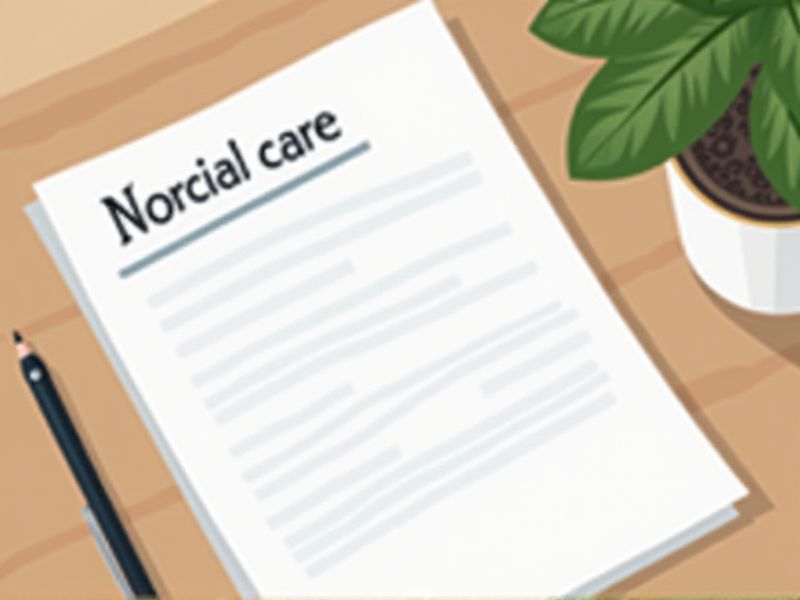
Nursing Associates in Social Care play a crucial role in delivering healthcare services, necessitating specific certifications to ensure comprehensive patient care and safety. The healthcare environment demands a solid foundation in medical knowledge and skills, which these certifications verify. By obtaining these credentials, Nursing Associates can enhance their proficiency and build trust with patients and colleagues. Here are some vital certifications required for a Nursing Associate in Social Care.
NVQ Level 3 in Health and Social Care
The NVQ Level 3 in Health and Social Care provides essential practical skills and foundational knowledge necessary for a Nursing Associate role, bridging the gap between healthcare support staff and registered nurses. It facilitates a comprehensive understanding of patient care, crucial for maintaining high standards in healthcare settings. This qualification supports career progression by meeting regulatory requirements set by health care standards authorities. A formal credential like NVQ Level 3 increases job opportunities and enhances professional credibility in the health and social care sector.
Care Certificate
The Care Certificate ensures Nursing Associates possess the fundamental skills and knowledge required to deliver safe and compassionate care. By standardizing introductory training, it enhances confidence and competence among carers, impacting overall quality of care. Regulatory bodies and employers seek assurance of consistent care standards, which the certificate provides. Integrating the Care Certificate into staff development reduces risks of malpractice, thereby improving patient outcomes in social care settings.
Basic Life Support (BLS) Certification
BLS Certification equips Nursing Associates in Social Care with essential skills to manage emergencies like cardiac arrest or choking, increasing patient survival rates. Social care settings often involve vulnerable individuals with higher health risks, making prompt and effective response vital. Proper training ensures adherence to protocols, minimizing liabilities and enhancing overall care standards. Knowledge of BLS acts as a foundation for further medical training, promoting continual professional development.
Medication Administration Certification
Medication Administration Certification ensures that a Nursing Associate in Social Care understands the correct procedures for dispensing medication, minimizing potential errors. Certification provides knowledge about the potential side effects and interactions, promoting safer patient care. Legal compliance is reinforced through certification, protecting both the caregiver and healthcare facility from potential litigation. Employers see certified individuals as more competent, often leading to better job opportunities and career advancement.
Manual Handling Certification
Manual Handling Certification ensures Nursing Associates in Social Care understand safe techniques, reducing injury risks when moving patients. It enhances patient comfort and safety, as trained associates can use correct methods to prevent harm. Certification provides staff with legal compliance knowledge, protecting the organization from potential liabilities. It increases job efficiency and confidence, as associates perform tasks with the correct skills and understanding.
Safeguarding Adults Certification
Nursing associates in social care often interact with vulnerable adults, necessitating safeguarding adults certification to ensure they recognize and respond to potential abuse or neglect effectively. Proper training improves their ability to work within legal and ethical frameworks, which helps prevent harm and promotes the well-being of individuals under their care. Certification also reinforces the trust of patients and families, as they feel reassured knowing that staff can ensure safety and advocacy. Organizations with certified staff can better adhere to regulations and standards, reducing the risk of legal issues and enhancing service quality.
Infection Prevention and Control Certification
In nursing associates, obtaining an Infection Prevention and Control (IPC) Certification enhances their capability to maintain a safe and hygienic environment. Effective infection control reduces the risk of disease transmission among residents and staff in social care settings. With certified knowledge in infection protocols, nursing associates can better adhere to legal and organizational health standards. Providing reassurance to stakeholders, certification validates commitment to residents' well-being, fostering trust and confidence in care systems.
Mental Health First Aid Certification
Nursing associates in social care often encounter individuals experiencing mental health crises, and Mental Health First Aid Certification equips them with the necessary skills to identify and respond effectively. Understanding mental health issues reduces stigma and promotes a more supportive and empathetic care environment. Certification training enhances communication and intervention strategies, leading to improved outcomes for those in need of mental health support. As mental health awareness grows, having certified associates ensures adherence to best practices and fosters overall well-being in care settings.
Dementia Care Certification
Dementia care certification enhances nursing associates' ability to provide specialized care, addressing the unique challenges faced by individuals with dementia. Proper training improves communication skills, leading to better patient outcomes and a safer environment for both patients and staff. Certified associates gain a deeper understanding of disease progression, enabling tailored care plans that are more effective in managing symptoms. In a competitive job market, such certification differentiates candidates, often leading to career advancement opportunities.
First Aid at Work Certification
Possessing a First Aid at Work Certification enables Nursing Associates in social care to effectively manage and respond to workplace emergencies, ensuring immediate and competent care for clients. Regulations often stipulate that health and social care professionals maintain current first aid knowledge, mitigating risk and enhancing safety for both staff and patients. Certification also contributes to professional development by expanding the nursing associate's skill set, aligning with career advancement opportunities and responsibilities. Knowledge from certification equips associates to better support their teams, fostering a cohesive environment focused on patient and client well-being.
Summary
By acquiring certifications, you can enhance your professional credibility and increase your employment opportunities. This additional qualification often translates to higher salary prospects and career advancement in the social care sector. Employers may trust certified Nursing Associates more, leading to increased responsibilities and leadership roles. The knowledge gained from certifications also improves the quality of care provided, positively impacting patient outcomes.
